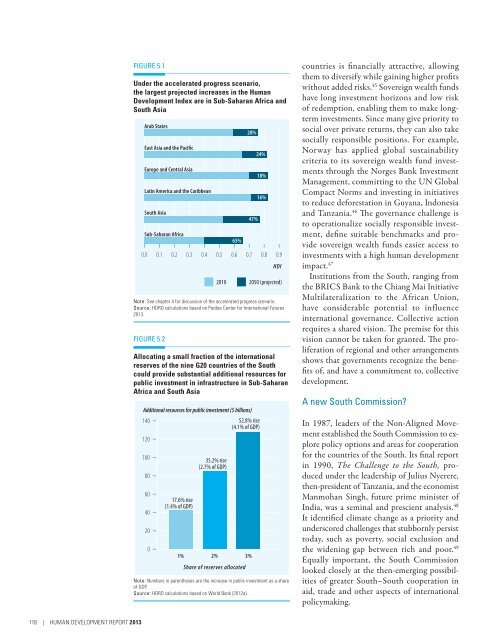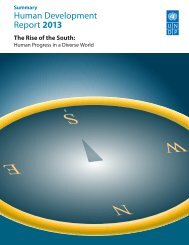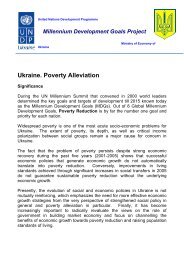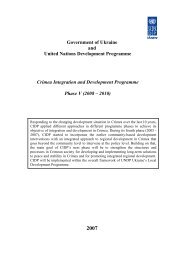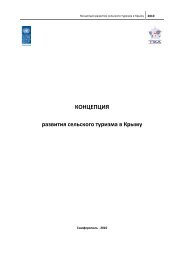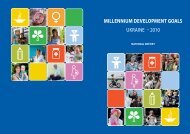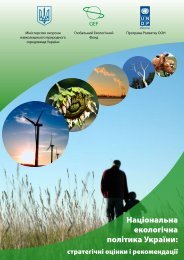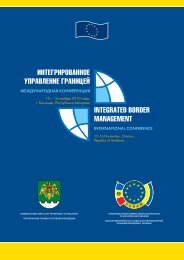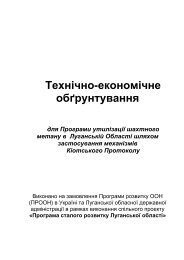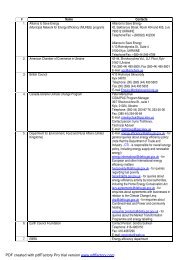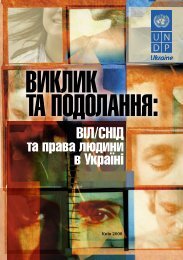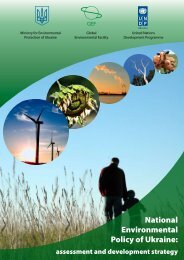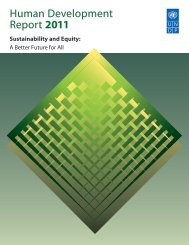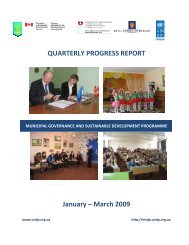E N S W - United Nations Development Programme
E N S W - United Nations Development Programme
E N S W - United Nations Development Programme
You also want an ePaper? Increase the reach of your titles
YUMPU automatically turns print PDFs into web optimized ePapers that Google loves.
Figure 5.1<br />
Under the accelerated progress scenario,<br />
the largest projected increases in the Human<br />
<strong>Development</strong> Index are in Sub-Saharan Africa and<br />
South Asia<br />
Arab States<br />
East Asia and the Pacific<br />
Europe and Central Asia<br />
Latin America and the Caribbean<br />
South Asia<br />
Sub-Saharan Africa<br />
0.0 0.1 0.2 0.3 0.4 0.5 0.6 0.7 0.8 0.9<br />
2010<br />
65%<br />
28%<br />
47%<br />
24%<br />
18%<br />
16%<br />
HDI<br />
2050 (projected)<br />
Note: See chapter 4 for discussion of the accelerated progress scenario.<br />
Source: HDRO calculations based on Pardee Center for International Futures<br />
2013.<br />
Figure 5.2<br />
Allocating a small fraction of the international<br />
reserves of the nine G20 countries of the South<br />
could provide substantial additional resources for<br />
public investment in infrastructure in Sub-Saharan<br />
Africa and South Asia<br />
Additional resources for public investment ($ billions)<br />
140<br />
52.8% rise<br />
(4.1% of GDP)<br />
120<br />
100<br />
80<br />
60<br />
40<br />
20<br />
0<br />
17.6% rise<br />
(1.4% of GDP)<br />
35.2% rise<br />
(2.7% of GDP)<br />
1% 2% 3%<br />
Share of reserves allocated<br />
Note: Numbers in parentheses are the increase in public investment as a share<br />
of GDP.<br />
Source: HDRO calculations based on World Bank (2012a).<br />
countries is financially attractive, allowing<br />
them to diversify while gaining higher profits<br />
without added risks. 45 Sovereign wealth funds<br />
have long investment horizons and low risk<br />
of redemption, enabling them to make longterm<br />
investments. Since many give priority to<br />
social over private returns, they can also take<br />
socially responsible positions. For example,<br />
Norway has applied global sustainability<br />
criteria to its sovereign wealth fund investments<br />
through the Norges Bank Investment<br />
Management, committing to the UN Global<br />
Compact Norms and investing in initiatives<br />
to reduce deforestation in Guyana, Indonesia<br />
and Tanzania. 46 The governance challenge is<br />
to operationalize socially responsible investment,<br />
define suitable benchmarks and provide<br />
sovereign wealth funds easier access to<br />
investments with a high human development<br />
impact. 47<br />
Institutions from the South, ranging from<br />
the BRICS Bank to the Chiang Mai Initiative<br />
Multilateralization to the African Union,<br />
have considerable potential to influence<br />
international governance. Collective action<br />
requires a shared vision. The premise for this<br />
vision cannot be taken for granted. The proliferation<br />
of regional and other arrangements<br />
shows that governments recognize the benefits<br />
of, and have a commitment to, collective<br />
development.<br />
A new South Commission<br />
In 1987, leaders of the Non-Aligned Movement<br />
established the South Commission to explore<br />
policy options and areas for cooperation<br />
for the countries of the South. Its final report<br />
in 1990, The Challenge to the South, produced<br />
under the leadership of Julius Nyerere,<br />
then-president of Tanzania, and the economist<br />
Manmohan Singh, future prime minister of<br />
India, was a seminal and prescient analysis. 48<br />
It identified climate change as a priority and<br />
underscored challenges that stubbornly persist<br />
today, such as poverty, social exclusion and<br />
the widening gap between rich and poor. 49<br />
Equally important, the South Commission<br />
looked closely at the then-emerging possibilities<br />
of greater South–South cooperation in<br />
aid, trade and other aspects of international<br />
policymaking.<br />
118 | HUMAN DevELOPMENT REPORT 2013


